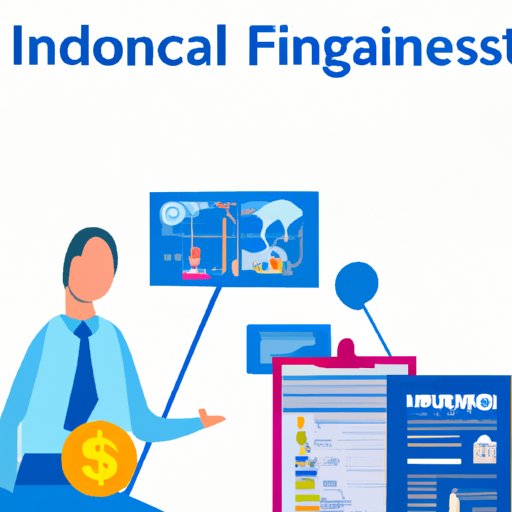Introduction
An independent financial advisor is a professional who provides financial advice and services to individuals, families, and businesses. They are typically self-employed or work for a financial services firm. Independent financial advisors have the opportunity to help their clients make sound decisions regarding their finances, create comprehensive financial plans, and provide guidance on investments, taxes, insurance, and more.
The benefits of becoming an independent financial advisor are numerous. For example, according to a 2018 survey by TD Ameritrade, independent financial advisors reported higher job satisfaction than those employed by firms. In addition, independent financial advisors have the ability to set their own hours, choose their own clients, and have more control over their business operations than those working for a firm.
Research Financial Services Regulations and Licensing Requirements in Your State
Before becoming an independent financial advisor, you must research the regulations and licensing requirements in your state. The requirements vary from state to state, so it’s important to familiarize yourself with the specifics in your area. Most states require financial advisors to obtain a license or certification in order to provide financial advice and services to clients. Additionally, many states require continuing education to maintain licensure.
It is also important to understand the regulatory bodies that govern the industry. The Securities and Exchange Commission (SEC) is responsible for regulating investment professionals, while the Financial Industry Regulatory Authority (FINRA) is responsible for licensing and monitoring securities brokers. It is essential to research both organizations and understand their roles in the industry.
Once you have researched the regulations and licensing requirements in your state, you can begin the process of obtaining the necessary credentials. Depending on your state, this may involve completing exams, registering with the SEC or FINRA, and filing paperwork with the state.
Develop an Understanding of Investments, Tax Laws, and Financial Planning
In order to become a successful independent financial advisor, you must develop an understanding of investments, tax laws, and financial planning. This includes learning about different types of investments, such as stocks, bonds, mutual funds, and ETFs. You should also gain an understanding of different investment strategies, such as dollar cost averaging, portfolio diversification, and value investing.
It is also important to gain knowledge of tax laws and their impact on financial planning. This includes understanding how different types of income are taxed and how to take advantage of deductions and credits. Additionally, you should learn how to create comprehensive financial plans for your clients. This involves understanding their goals and objectives, analyzing their current financial situation, and developing a plan to meet their needs.

Networking with Current Independent Financial Advisors
Networking with other independent financial advisors is an important step in becoming an independent financial advisor. By connecting with other professionals in the industry, you can gain valuable insight into best practices, learn about new products and services, and build relationships with potential clients.
There are several ways to connect with other independent financial advisors. You can join professional associations such as the Financial Planning Association or the National Association of Personal Financial Advisors. You can also attend conferences and seminars, join online discussion groups, and participate in webinars. These activities will help you build your network and establish relationships with other professionals in the field.

Establishing Relationships with Potential Clients
Once you have established yourself as an independent financial advisor, you will need to start building relationships with potential clients. Identifying target markets is key to attracting the right type of clients. This could include high net worth individuals, small business owners, or young professionals, for example. Once you have identified your target market, you can begin utilizing social media and other resources to reach out to potential clients.
You can also use referrals to attract new clients. Ask existing clients to refer friends and family members who may be in need of your services. Additionally, you can partner with other professionals such as accountants, attorneys, and insurance agents to expand your reach.
Conclusion
Becoming an independent financial advisor is a rewarding career path. Before taking the plunge, however, it is important to research the regulations and licensing requirements in your state, develop an understanding of investments, tax laws, and financial planning, network with other professionals, and establish relationships with potential clients. With the right preparation and dedication, you can be successful in this profession.
(Note: Is this article not meeting your expectations? Do you have knowledge or insights to share? Unlock new opportunities and expand your reach by joining our authors team. Click Registration to join us and share your expertise with our readers.)
